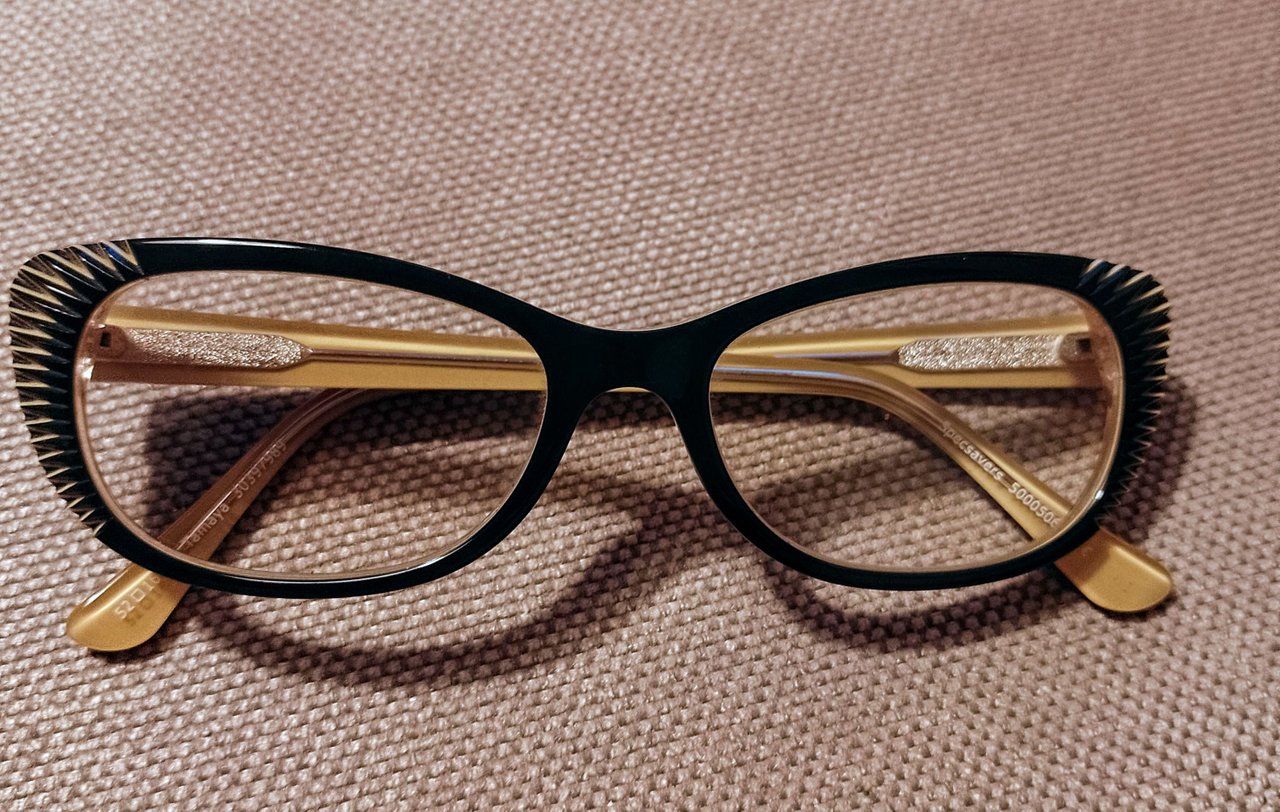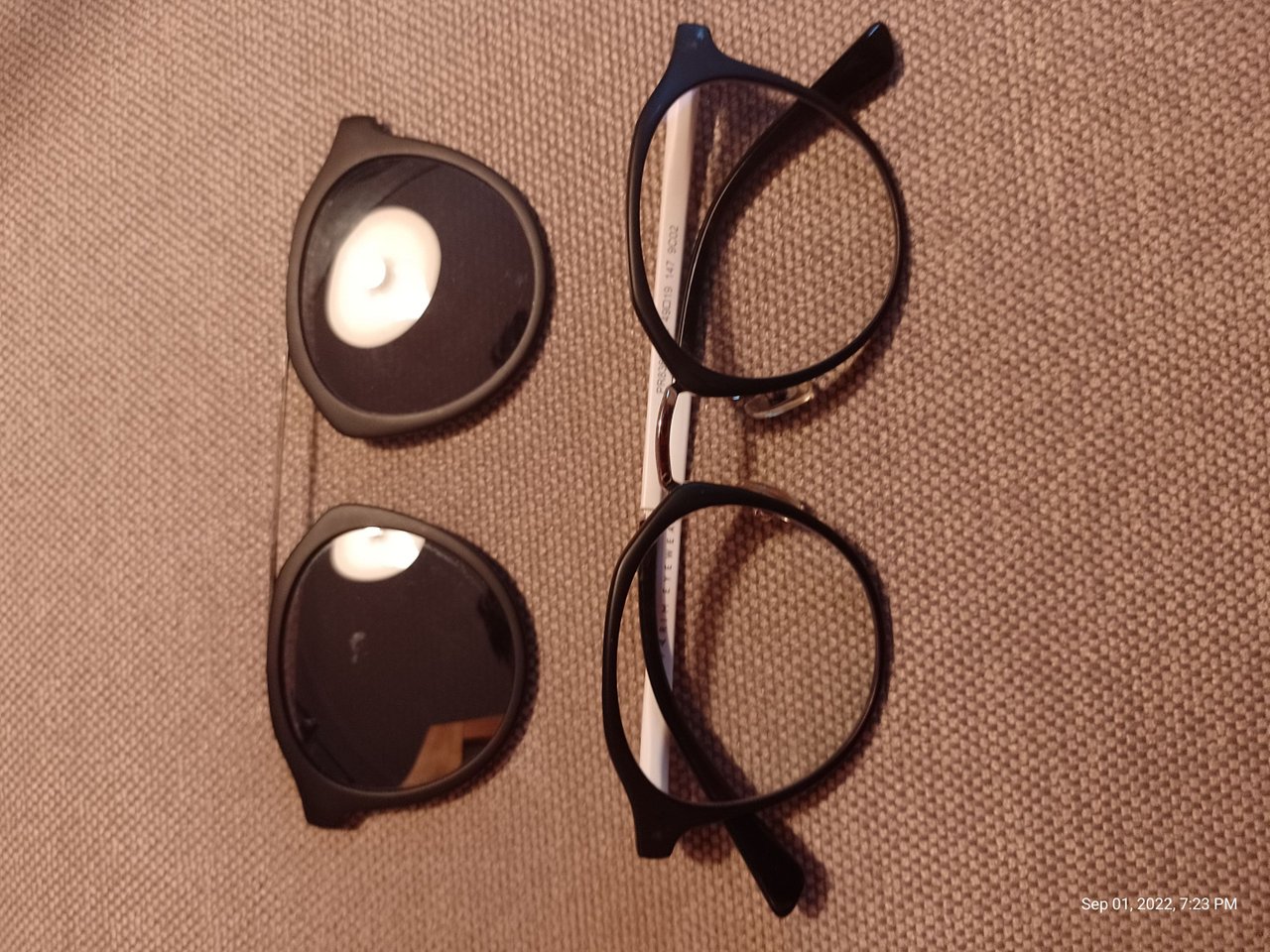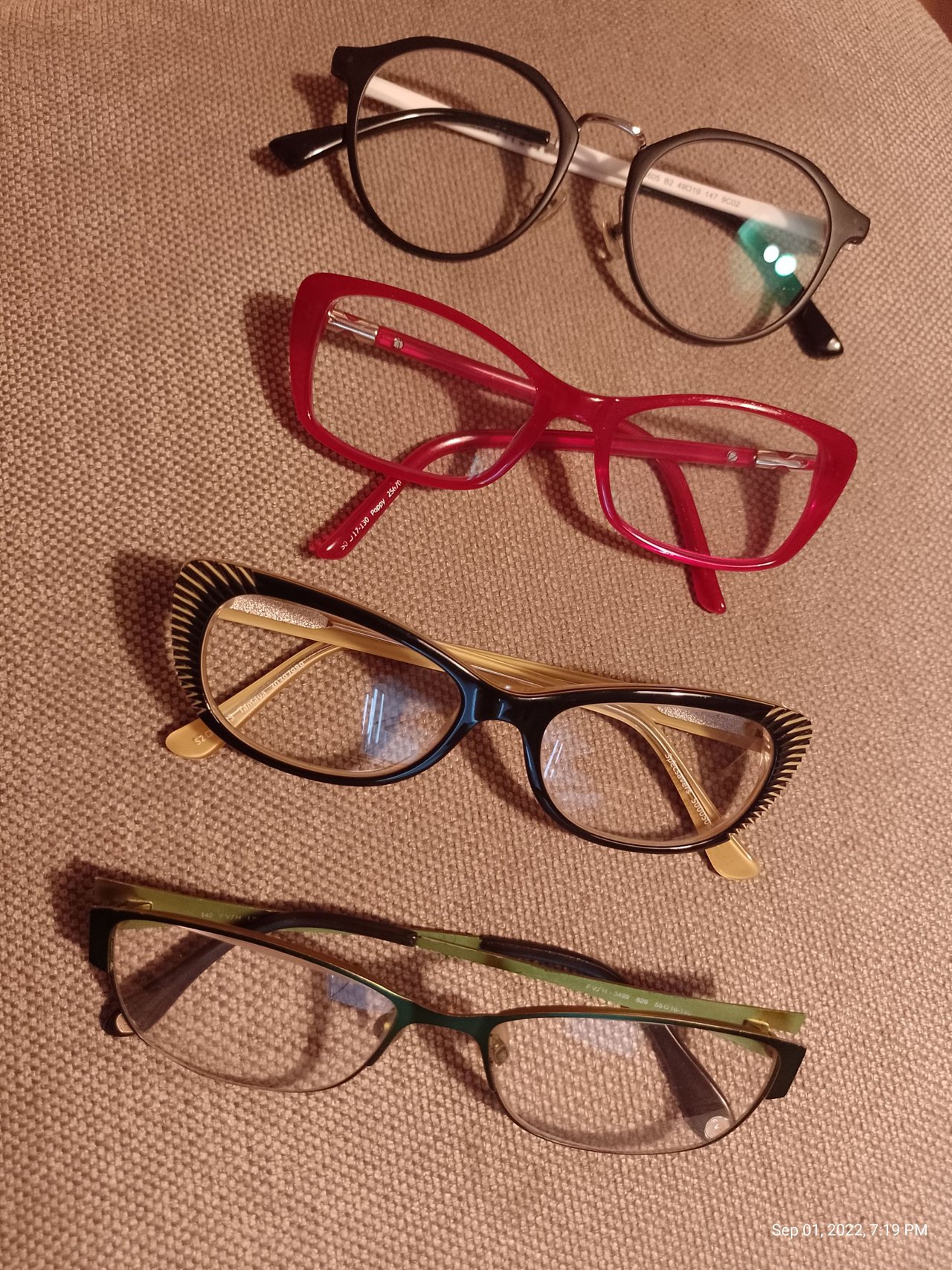I was optimistic and eagerly looking forward to my eye test today. You see, I'm considered at high risk for Glaucoma, based on the fact that both my dad and my sister suffer from that eye disease. This makes me very likely to develop the disease as I grow older, therefore I have an obligatory eye test every one to two years.
Still, I had managed to convince myself that there was a miraculous transformation in my vision because my reading seemed easier, so I was a tad bit disappointed with my vision test, as I struggled to identify the second letter in the top line of the chart but relieved that I have no sign of glaucoma.
It was my first time at this particular Optician; The same company Specsavers that I use here in the UK, and for my vision test, I'd hope to hear something along the lines of:
"Wow! Your eyes are like that of a teenager. You could continue to wear glasses only if you wish to."
Well, that was "wishful thinking".
Glaucoma, which is a build-up of pressure in the eyes, is one of the most common eye diseases. The optometrist explained that people of my race are even more prone to developing glaucoma based on the pigment level in our iris. I have attached a link with a short video clip of the disease explained by an NHS doctor here.
My dad and his siblings inherited glaucoma from my granddad who went blind before he passed away, and my sister has been undergoing treatment for the disease for many years. My dad was first diagnosed with the disease over 40 years ago, and he has managed to maintain his vision and reduced the rapid deterioration rate expected from glaucoma, due to the continuous use of eye drops, and in more recent years, laser surgeries.
Regular tests need to be done so that treatment could be applied at the onset of the disease, for better results than if discovered in its later developed stage.
I was prescribed glasses and wore them occasionally in my twenties. However, as I got older and reached a certain age, I no longer had the luxury of choice regarding whether I wear glasses or not. Now, I do everything my doctor recommends and I have consistently been wearing reading glasses for the last seven years, and that is how I see. I can't read print or screen words without prescription glasses, and sometimes even with glasses, I struggle to recognize smaller fonts.
However, with continuous eye exercises in recent months as part of my face yoga routine, I now have more control over the movements of my ocular muscles. It's less painful when I rotate my eyes in their orbit, and I honestly thought my reading was better. (The Optometrist was happy to hear that and also recommended that I take some Omega 3 supplies, try to eat oily fish at least twice per week, and drink lots of water).
But alas, it's not the case!
My eyes deteriorate on each check-up, and I now have a collection of glasses - two for reading and two for seeing at a distance.
I tossed a few scratched lenses, and my current reading ones are obsolete, and I should receive my two new pairs next week. The good news is that apart from my reading, my regular vision has improved, and I don't need to change my distance glasses.
I particularly like these distance glasses, because of the detachable dark polarised lenses that fit over the prescribed lenses.
Frames
Do you have a preference for frames? Plastic vs metal?
I have always preferred plastic frames over metal ones because they feel sturdy and can withstand the different elements and seasons better. Also, I find the nose pads on metal frames tend to leave an indent mark right on the bridge of the nose more than the plastic ones do.
The metal green frame is my newest reading glasses, but the con of this kind of frame is that the flipping lens falls out easily, and I have to continuously ensure that the screw is tightened, which the receptionist offered to do for me.
What are my other options you might wonder?
Contact lens is not recommended as I have sensitive eyes that are prone to get infected easily.
Varifocal Lenses of course have been recommended by various optometrists, but unfortunately, they agreed that I might not be the best candidate since I do suffer from vertigo, and varifocal lenses do take some getting used to.
For now, I switch between reading and distance glasses.
It's annoying to switch, so for example I'm in a store, I need to walk around with my distance glasses, but I cannot read products with them, so I have to switch to my reading, the same for my mobile.
Eventually, I might have to have laser treatment, but I think doctors have decided that it's best to wait first, keep monitoring my eyes for glaucoma, and tossing investing money in glasses each time I visit.
Have you ever thought about losing one or more of your senses?
Well, it might not be a surprise that I have.
Six years ago at regular eye tests, the doctor suggested that I do a hearing test at the same time. I complied even though I never 'sensed a problem with my hearing' but I thought it wouldn't hurt. At the end of the test, the doctor was laughing because he realised that I was not aware that my hearing is not good in my right ear.
I haven't done another test, but now I do recognise the difficulty hearing from that ear. I call it one-dimensional hearing because I cannot hear more than one sound at a time. Some scenarios where I have difficulty hearing and following conversations are at noisy restaurants, or difficulty hearing someone speak if there's a running tap or other background noise.


